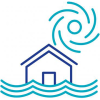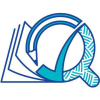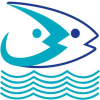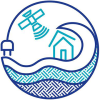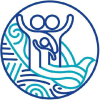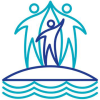Overcoming the Pandemic: Regional Commitment to build a brighter future for Pacific children
The Pacific Community (SPC) will be launching the results of the Pacific Islands Literacy and Numeracy Assessment (PILNA), on 8 September during the International Literacy Day celebrations, using a more interactive digital reporting version that will be made accessible to all 15 participating Pacific island countries.
The assessment was administered by SPC’s Educational Quality and Assessment Programme (EQAP) last year despite the challenges brought forward by the COVID-19 pandemic.
- June 8, 2022
- Media release
PILNA results reporting has transitioned from a printed report distributed in the previous cycles to a digital version, this year, to make information easily accessible to all stakeholders and to allow users to easily dig deeper into data relevant to their fields.
The new approach aims to allow users to actively control data retrieval and display, enabling/encouraging greater data exploration rather than just passive consumption of information. This interactive approach is in response to the feedback received in the previous cycles.
In the fourth cycle, EQAP administered PILNA in 952 schools, majority of which completed the administration within a five-week window, starting from November 2021. Fiji, being one of the hardest hit COVID-19 countries in the region, completed the administration of the assessment following the easing of restrictions in the first quarter of 2022.
The Pacific’s efforts in administering PILNA despite border closures, disruptions in shipping schedules and high prevalence of COVID-19 in some participating countries manifested the commitment of the region to improve its literacy and numeracy achievement, a goal shared by many regional stakeholders.
Pacific leaders have identified education as a key priority for the region to allow every Pacific child to have access to quality education regardless of gender, background, ethnicity and socio-economic status. Through this priority, the region aims to reverse the global trend of youth leaving school without appropriate skills to constructively engage in society and secure employment.
The Pacific Board for Educational Quality (PBEQ), EQAP’s governing body, endorsed PILNA as a regional approach to improve the achievement of Year 4 and Year 6 students’ literacy and numeracy skills. This allowed EQAP to compile regional and country specific data that has helped Pacific governments to develop national policies and to strengthen the quality of education systems of the region.
Background
PILNA was first administered by EQAP in 2012 as a one-time assessment to gauge the literacy and numeracy skills in 14 Pacific island countries (PICs). The findings of the assessment were presented at the Forum Education Ministers Meeting (FEdMM) in which a subsequent cycle of PILNA was requested and later led to the development of the long-term regional assessment.
The long-term assessment, suggested by FEdMM, is structured to provide valid and reliable results over time to support existing efforts to improve educational outcomes set by the education ministers.
This commitment of FEdMM is directly linked to the United Nations Sustainable Development Goals (SDGs), which outline a global commitment to a 15-year agenda to tackle poverty through initiatives that encompass the environmental, social and economic dimensions of sustainable development. SDG 4 specifically focuses on the quality of education, including reading and mathematics.
PILNA addresses targets identified in SDG 4 by providing governments, schools, communities and students with a measure of the literacy and numeracy skills of students who have completed education at Year 4 and 6 levels. This includes students with special needs who are provided with special accommodations. This valuable information enables stakeholders to develop interventions and policies. It also encourages political support and raises community awareness about the necessity to improve the learning outcomes of young people in the Pacific.
The regional assessment generates cognitive and contextual data that can be used to facilitate collaborative efforts to monitor and improve learning outcomes for children in the PICs. Through this collaboration, PILNA helps to strengthen learning assessments, standards and policies, while also supporting improvement in teaching and learning across the Pacific region. The Australian Council for Educational Research (ACER) provides analytical and technical support in partnership with EQAP.
PILNA comprises of two assessments and three surveys, all of which are conducted over two consecutive days. The literacy assessment is administered on the first day, followed by the numeracy assessment on the second day. Following the numeracy assessment, students complete a questionnaire designed to capture their learning realities. Contextual questionnaires are also completed by the headteachers and teachers at the participating schools, prior to the two-day administration.
The assessment falls under EQAP’s list of activities, specifically under the Pacific Regional Education Framework (PacREF). The programme is financially supported by the governments of Australia and New Zealand.
